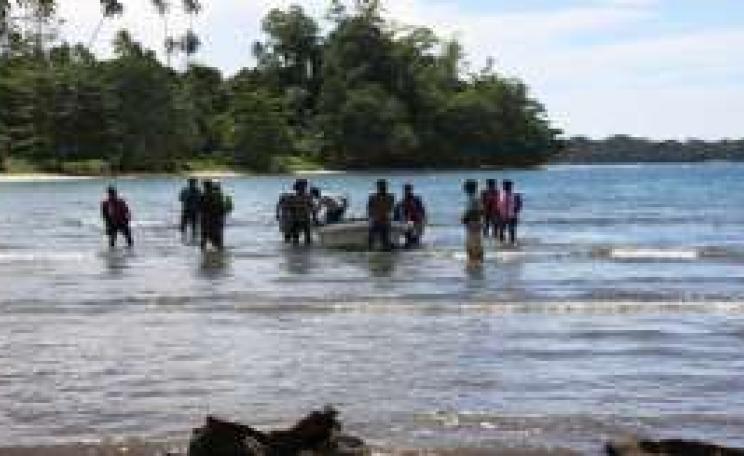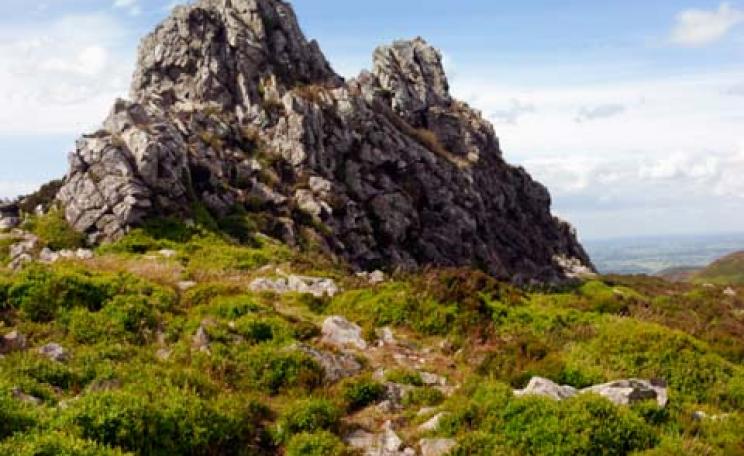I have been on the Carteret Islands for over a week now, living in a small house made of sago palms, rising with the roosters and going to sleep with the sun – or at least as close to sunset as the sandflies will allow. It is hard to find the words to do it justice. Imagine your perfect desert island: white sand, coconut palms, the only sounds those of children playing in crystal waters or the low murmur of conversation.
There is a church, a school, and breadfruit cooking on fires made from coconut husks. I have been swimming and washed myself clean of salt in cold water drawn from a well. People laugh because my skin is so white. I am learning what I can of their language and hand out Polaroid photos of my hosts, which are hugely popular.

But, of course, it is not paradise. That is why I am here. The islanders are well aware their lives here are coming to an end. Talk to anyone long enough and it is obvious they are sad, and frightened. Walking through Han island – the largest in the Carterets – you can see where high tides and storms over [last] Christmas tore across the land, poisoning the fruit trees they rely on for food. Many have died, just bare skeletons remain, and those that survived are withered, fighting off disease.
The island itself is shrinking, too, as the sea eats away at the land. In some places you can stand on one side of the island and see the blue ocean on the other through the trees. Already, all too little land remains. As we were walking through the devastation, my friend Reuth kept saying she was sorry. I asked her why: “I am sorry for my island,” she said quietly. “I can see now that one day this island will disappear and we won’t have this island any more. We will lose it.”

Today we paddled a canoe out to the reef that surrounds these islands, and which protects them from the sea. There, the waves slam down, and it is easy to imagine them as thieves - stealing in and making off with snatches of the islands. As we paddled through the lagoon, the other islanders in the boat showed me where they remember the island used to be – an incredible distance from the shore today, easily fifty metres, if not more.
It is hard to believe that climate change alone has caused that much change. These islands are, after all, an atoll and as such it is in their geological nature to sink. Perhaps it is the two together – sinking islands and a rising sea – that have caused so much to change, so quickly. Perhaps it is one and not the other. Really, I have come to realise, it does not matter what has caused this. It is happening now and these people’s lives: the church, the school, the children playing in the crystal waters, that is being brought to an end. And that is a crying shame.
*Update on 9th September
On insurance, the Chief Exec of one of the industry's big boys, Allianz, has used The Sunday Times to take a swipe at government for failing to live up to its talk on climate change. Ministers have failed to explain how climate change targets announced this year will be met.
HSBC research also shows that Gordon Brown's promises to pursue a Green New Deal are not matched by the money his government has ponied up to fund it - a bare fraction of that provided by the US, France, Germany and China.
Andrew Torrance, the Allianz CEO, suggests emissions cuts of 40 per cent by 2020. His industry also want Britain to start preparing for the physical impact of climate change. Why? Two big floods in 2007 wiped £70m off Allianz's bottom line.




